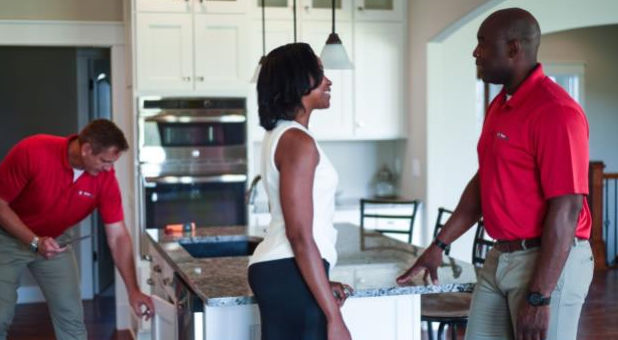Tips For Negotiating Repairs Post-Inspection from HomeTeam

The initial home inspection report can reveal a lot about a home. Here’s what you need to know to successfully secure repairs before finalizing the purchase.
With the real estate market heating up, it is more important than ever for buyers and sellers to be knowledgeable about the home inspection process and what to expect after the report comes back. HomeTeam Inspection Service, a leading home inspection provider, is offering tips for how to negotiate home repairs prior to closing the deal.
“Home inspections are a crucial part of the home buying process as they reveal the true state of the home,” explained Adam Long, president of HomeTeam. “An inspection prepares the potential buyer to enter a deal with a complete understanding of the home they’re purchasing and equips them with the information they need to negotiate any repairs they want done prior to closing.”
The first step is to receive the inspection report and ensure you fully understand it. HomeTeam inspectors will make themselves available to answer any additional questions or provide clarification regarding the contents of the report. With this information, you can begin to prioritize necessary repairs. Issues noted in the inspection
report that pertain to the safety, functionality and structural integrity of the home should be considered in negotiations..
Consult the Professionals
Once you have an idea of where you stand regarding the repairs, begin to consult the professionals. Gathering expert advice and quotes from contractors prepares you to prepare a repair request that is well-informed and potentially more compelling.
When building the repair request, each line item should be backed up by clear documentation and specific language. For example, a request such as “repair the leaking pipe under the bathroom sink,” accompanied by a quote or two from qualified contractors, is more helpful than a line item that simply says “fix plumbing.”
Throughout this process, it is important to keep prioritization in mind. You should also consider the state of the market. Your real estate agent may be willing to talk through the overall value of the home and how it compares to other similar listings in the area. Think through which issues you need repairs for, if there are any issues that you might accept a credit for repairs or if it makes sense to accept a broader reduction in the selling price.
Initiate the Conversation and Begin the Negotiations Process
Once your request is complete, you can present the document to the other party. Sometimes, this will be the sellers themselves, and other times, their representative or agent will engage in the conversation. Communicate your concerns and expectations at the first meeting, but remember to also stay open to what they have to say.
It is not uncommon that a request for repairs will lead to a negotiation process. If the home is worth it to you, consider compromising in some areas to find a common ground that satisfies both parties. Negotiations often require a bit of back-and-forth, so prepare to engage in ongoing conversations.
Finalize Agreed-Upon Repairs and Complete a Final Walkthrough
Even after an agreement is met, the process is not entirely complete. The agreement should be finalized in writing, often as an amendment to the initial purchase agreement. Including a detailed write-up of the scope of work, who will be performing the repairs and the intended timeline is important to protect both parties.
Some buyers may also consider collaborating with the sellers to secure additional quotes and choose the most fair option.
As repairs are completed, you should continue to follow-up and stay involved. This helps to ensure the agreed-upon work is completed in its entirety and to your satisfaction. Buyers will usually request receipts and a final walkthrough to verify that the home is truly ready for closing day.
Though this process can delay the closing date, engaging in proper negotiations can support both parties in finding a mutually beneficial course of action that will lead to an ideal purchase agreement.



